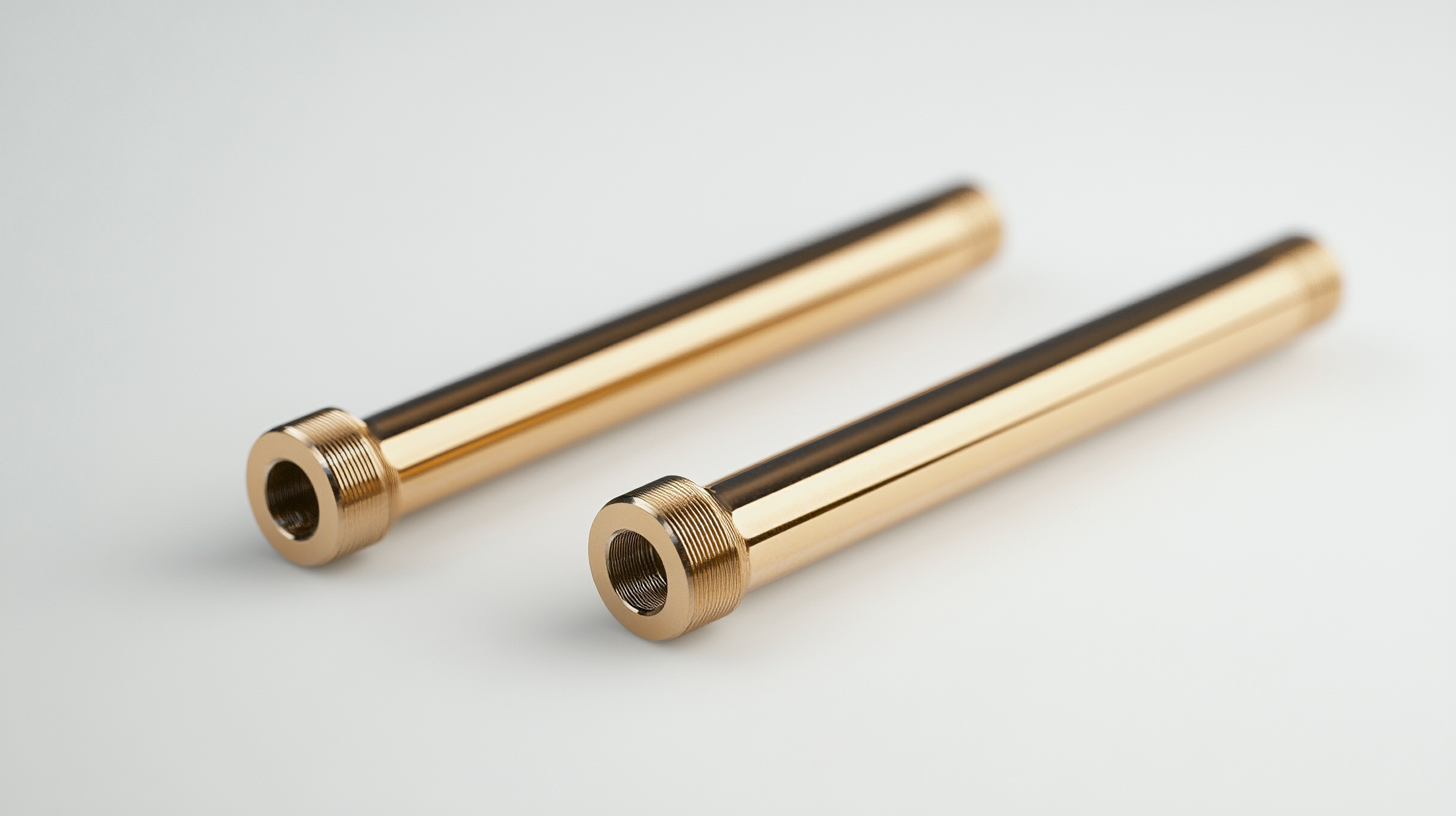SUNDI TOOLS
- Copyright © Wuxi Sundi Precision Tools Co.,LTD All rights reserved.
- Site Map
In the ever-evolving landscape of manufacturing, Solid Carbide Drills (SCDs) stand out as essential tools due to their remarkable performance and longevity. Recent industry reports indicate that the global market for solid carbide tooling is projected to reach USD 5.5 billion by 2026, growing at a CAGR of 5.3% from 2021. This growth reflects the increasing demand for high-precision drilling solutions in sectors such as automotive, aerospace, and medical device manufacturing, where the need for durability and efficiency is paramount. SCDs not only enhance productivity by providing faster drilling speeds but also offer superior wear resistance compared to conventional high-speed steel drill bits.
Understanding the global standards for Solid Carbide Drill manufacturing is crucial for ensuring quality and consistency across products. Organizations like ISO (International Organization for Standardization) have established guidelines that govern the specifications and testing methods for solid carbide tools, emphasizing the importance of material properties and dimensional accuracy. Furthermore, adhering to these international standards not only boosts the credibility of manufacturers but also helps them gain a competitive edge in a market that increasingly values precision and reliability. As we delve deeper into this topic, we will explore the various factors influencing the manufacturing standards and the implications for both producers and end-users in the solid carbide drill sector.

Solid carbide drills are produced using specialized materials that influence their performance, durability, and application across various industries. The core material used in solid carbide drill manufacturing is tungsten carbide, known for its exceptional hardness and resistance to wear. According to a report by Technavio, the global tungsten carbide market is projected to grow at a compound annual growth rate (CAGR) of 5.6% from 2021 to 2025, emphasizing the increasing demand for specialized tools in manufacturing. In addition to tungsten carbide, cobalt is often used as a binder in the production of solid carbide drills. Cobalt enhances toughness and improves the tool's ability to withstand high temperatures generated during drilling operations. A study published in Materials Today highlights that the optimal cobalt content in tungsten carbide can significantly improve the mechanical properties of the drill, making it more resilient in rigorous conditions. Furthermore, advanced coatings such as titanium nitride (TiN) and diamond-like carbon (DLC) are applied to enhance the performance of solid carbide drills. These coatings provide superior lubricity, reduce friction, and extend tool life, which is vital in high-speed machining environments. The global cutting tool coatings market is estimated to reach USD 3.5 billion by 2024, reflecting the growing emphasis on performance-enhancing treatments in the tool manufacturing industry. The careful selection of these materials and coatings not only maximizes efficiency but also reduces operational costs for manufacturers and end-users alike.

The production of solid carbide drills is governed by a myriad of international standards that ensure quality, safety, and efficiency in manufacturing processes. These standards are essential not only for compliance but also for enhancing the performance of drills in various applications. Organizations such as the International Organization for Standardization (ISO) and the American National Standards Institute (ANSI) define specific criteria that manufacturers must adhere to in order to produce high-quality tools.
One of the key standards applicable to solid carbide drill production is ISO 9001, which outlines the requirements for a quality management system. By adhering to these guidelines, manufacturers can systematically improve their processes, increase customer satisfaction, and ensure that their products consistently meet or exceed customer expectations. Furthermore, compliance with ISO standards facilitates global trade by ensuring uniformity and reliability in products, which is particularly important in industries that depend on precision tooling.
Additionally, environmental standards such as ISO 14001 have become increasingly important in the manufacturing of solid carbide drills. These frameworks help manufacturers minimize their ecological footprint by promoting sustainable production practices. This includes responsible sourcing of materials and waste management practices that comply with international environmental legislation. As the industry continues to evolve, staying abreast of these standards will be crucial for manufacturers aiming to remain competitive and responsible in the global market.

Quality control is a critical aspect of carbide drill manufacturing that directly influences product performance and customer satisfaction. According to a recent market research report by Mordor Intelligence in 2022, the global carbide tooling market is projected to grow at a CAGR of 6.7% between 2023 and 2028. This growth is largely fueled by the rise in applications across various industries, emphasizing the need for stringent quality measures in the production of solid carbide drills.
To ensure the integrity and durability of carbide drills, manufacturers employ a variety of quality control techniques throughout the fabrication process. These include rigorous testing methods such as metallographic analysis and hardness testing, which assess the microstructure and hardness of the drills. For instance, studies reveal that drills with a hardness rating of at least 90 HRA significantly outperform those with lower ratings. By adhering to international quality standards, such as ISO 9001, manufacturers can establish a framework for consistently delivering high-quality products that meet or exceed customer expectations.
Moreover, advanced technologies such as computer numerical control (CNC) machining and real-time monitoring systems are increasingly being integrated into the manufacturing process. A report by the International Organization for Standardization (ISO) emphasizes that these technologies can reduce production defects by up to 30%, further highlighting the importance of adopting cutting-edge solutions in quality control. As the demand for precision-engineered carbide tools continues to rise, implementing effective quality control measures will be paramount in maintaining competitiveness in the global market.

In the context of solid carbide drill manufacturing, global standards play a crucial role in enhancing manufacturing efficiency. As industries strive towards greater productivity, adhering to these standards ensures that manufacturers can achieve consistency in quality while also meeting international benchmarks. This is particularly significant in sectors like semiconductor manufacturing, where precision and reliability are paramount.
The emphasis on energy efficiency has become a focal point for manufacturers around the world. By implementing automation and adopting global standards, manufacturers can not only streamline their processes but also significantly reduce their carbon footprint. Reports indicate that energy efficiency is the "first fuel" of clean energy transitions, underscoring its importance in the quest for sustainability. This commitment not only aids manufacturers in reaching their sustainability goals but also aligns them with consumer expectations for eco-friendly practices.
Moreover, as AI continues to reshape the factory floor, the integration of advanced technologies with global standards can further optimize production processes. This transformation can lead to enhanced productivity, cost reductions, and improved environmental outcomes. By prioritizing these global standards, manufacturers are better positioned to navigate challenges within supply chains while fostering a resilient and efficient operational framework.
In recent years, the solid carbide drill technology landscape has been evolving rapidly, driven by innovations that enhance productivity and precision in machining processes. The increasing demand for high-performance cutting tools has catalyzed advancements in solid carbide production standards. These developments not only reflect the urgency for efficiency in drilling operations but also highlight the industry's commitment to adapting to new manufacturing challenges.
The trend towards faster and more flexible custom tooling is particularly notable. Manufacturers are leveraging cloud technology to facilitate easier access to tool data, enabling engineers and machinists to make informed decisions quickly. Automation is also shaping the future of solid carbide drill production, streamlining processes and reducing lead times. These technological strides are crucial as industries such as aerospace and automotive continue to push for precision in their operations.
Moreover, there's a significant shift towards materials that can withstand higher stresses, like titanium, while also enhancing the longevity and performance of cutting tools. The focus on performance also extends to recycling and sustainability, with a growing emphasis on managing carbide scrap effectively. As the market for carbide tools is poised for extensive growth, understanding these trends and standards will be essential for manufacturers aiming to maintain competitive advantages in the evolving landscape of machining technologies.